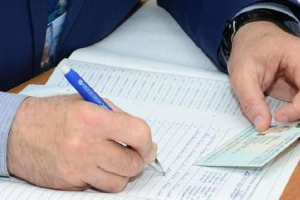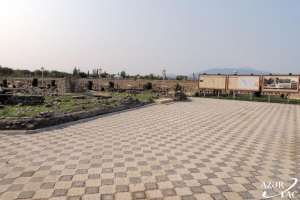


President Rodrigo Duterte said Tuesday the country cannot afford to go to war against China amid calls for a stronger response following reports Beijing has landed bombers on disputed South China Sea islands.
“I cannot afford at this time to go to war. I cannot go into a battle which I cannot win and would only result in destruction for our armed forces. I really want to do something to assert. But you know, when I assumed the presidency, there was already this ruckus in the West Philippine Sea," Duterte said during a speech at the Philippine Navy's 120th anniversary in Manila,
In 2012, the Philippines officially renamed waters off the country’s west coast the West Philippine Sea as part of efforts to define its sovereign territory.
Duterte emphasized his “desire to defend” but said he does not want to make any move that would be destructive to the nation.
“In my own estimation, it would be a great loss to the nation, and probably we will end up losing a war. All of these things I want to be made known to you. Whether you accept it or not, that’s the reality on the ground.”
Duterte, however, told the Philippine Navy to continue its duty in defending the country’s sovereignty, particularly the West Philippine Sea.
"I therefore ask each of you to do your part so that in the next 120 years, we can establish a naval force that will last a lifetime, and maybe we can start invading other nations," he said.
Several lawmakers, experts and critics have slammed the Duterte administration’s downplaying of Manila’s dispute against Beijing.
Vice President Leni Robredo joined several others in asking the government to file a diplomatic protest against China.
“We are asking for the Department of Foreign Affairs to file a diplomatic protest in the wake of these developments so we could express our opposition to China’s actions,” Robredo said in a statement.
Robredo said China’s recent actions are threats to the Philippines’ security and the entire region.
Vietnam has condemned China’s landing of bombers on islands in the disputed waters, but the Philippines only said it is closely monitoring developments. However, it stressed its policy of not publicizing all of the government’s actions conveyed through diplomatic channels.
Beijing claims nearly all of the South China Sea. Southeast Asian nations Brunei, Malaysia, the Philippines, Taiwan and Vietnam have overlapping claims on the waters.
In 2016, the Permanent Court of Arbitration in The Hague concluded that Beijing's claims to areas of the resource-rich sea have no legal basis. The arbitration was launched by the Philippines, whose “sovereign rights” it said China had violated. China rejected the ruling.














